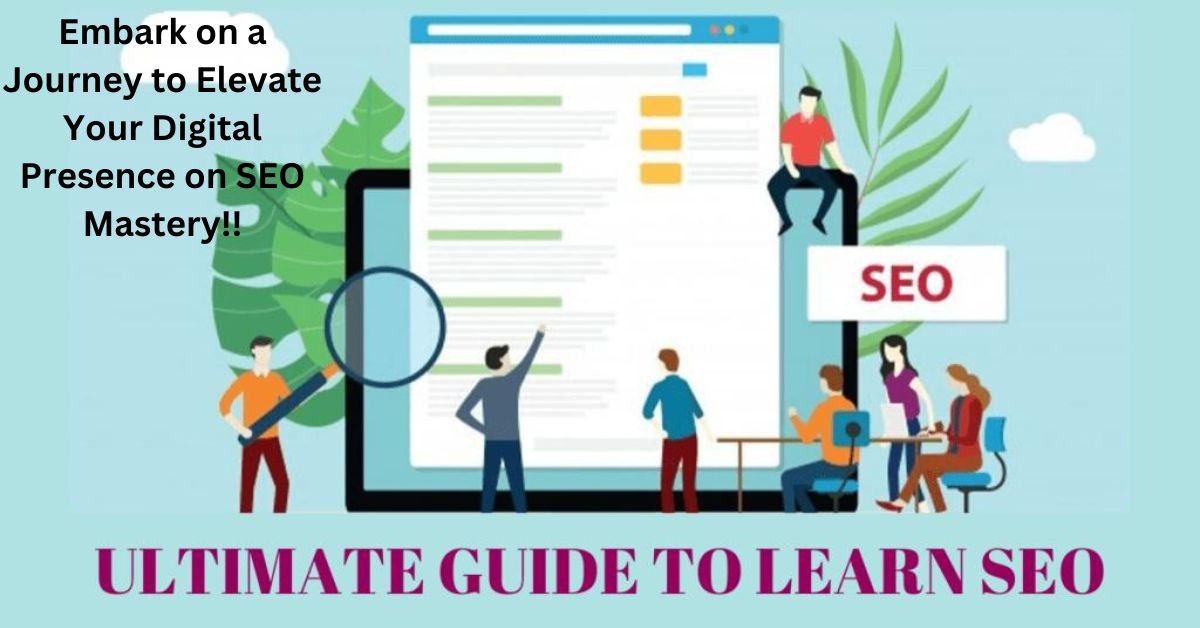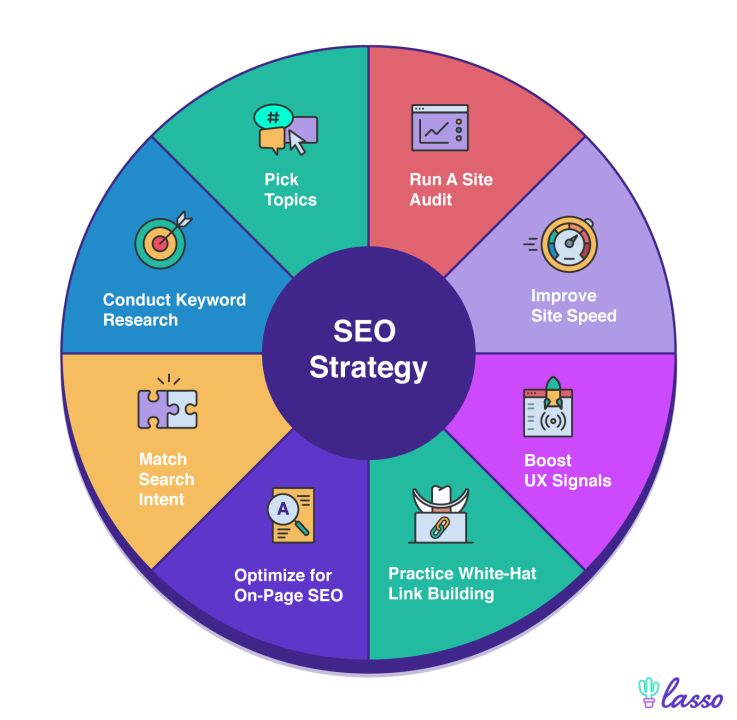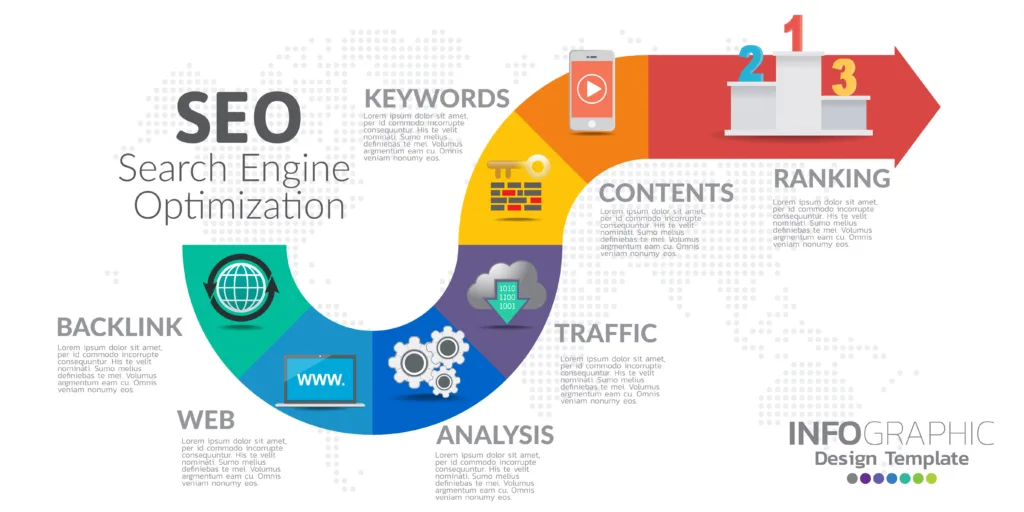Uncover the secrets to crushing the competition with our ultimate guide to mastering SEO strategy for small businesses today!

Image courtesy of via DALL-E 3
Table of Contents
Welcome to our comprehensive guide on mastering SEO strategy for small businesses! In this guide, we will explore the world of SEO, or Search Engine Optimization, and why it is crucial for small businesses to thrive online.
What is SEO?
SEO stands for Search Engine Optimization, which is a fancy way of saying it helps websites show up higher in search results. Imagine you have a super cool lemonade stand, and SEO is like putting up a big sign so more people can find your stand!
Why is SEO Important?
For small businesses, SEO is like having a secret superpower to get noticed by more people online. It helps your website stand out in a sea of other websites, making it easier for customers to find you and your awesome products or services.
Understanding Keywords
What Are Keywords?
Keywords are like magic words that help people find what they’re looking for on the internet. When you type something into a search engine like Google, those words are keywords. For example, if you’re looking for cute puppy pictures, you might type in “funny dog photos” as your keywords. These keywords help search engines show you the best websites that match what you’re searching for.
How to Find the Right Keywords
Finding the right keywords for a small business is like finding the perfect treasure map. You want to use words that many people are searching for online, but also words that fit your business. If you have a bakery, you’d want to use keywords like “delicious cupcakes” or “freshly baked bread.” To find these magical keywords, think about what words people might use to find your business and use tools like Google Keyword Planner to help you discover popular keywords that can make your website stand out.
On-Page SEO
When it comes to on-page SEO, one of the most important things to do is optimize your web content. This means using keywords that relate to your small business in a natural and relevant way. For example, if you have a bakery in Chicago, using phrases like “best cupcakes in Chicago” or “top pastries near me” can help search engines understand what your website is about and show it to people searching for those terms.
Using Meta Tags
Meta tags are snippets of text that describe the content of a web page, but they don’t appear on the page itself. Instead, search engines use these tags to understand what the page is about and decide when to show it in search results. By including relevant keywords in meta tags like the title tag and meta description, you can improve your website’s visibility and attract more visitors.
Technical SEO
When it comes to making sure your website is easily accessible to search engines, technical SEO plays a crucial role. These behind-the-scenes aspects focus on the performance and user experience of your website. Let’s dive into two critical areas of technical SEO: improving website speed and creating a mobile-friendly design.

Image courtesy of www.linkedin.com via Google Images
Improving Website Speed
Website speed is like the fast lane on a highway for your online visitors. When a website loads quickly, users are more likely to stay and engage with your content. Search engines also favor fast-loading sites because they provide a better user experience. To enhance your website speed, consider optimizing images, leveraging browser caching, and minimizing redirects. By implementing these strategies, you can boost your website’s performance and make it more appealing to both users and search engines.
Mobile-Friendly Design
With the increasing use of smartphones and tablets, having a mobile-friendly website is no longer optional – it’s essential. A mobile-friendly design ensures that your site looks great and functions well on smaller screens. This improves the overall user experience and can lead to higher rankings in mobile search results. To make your website mobile-friendly, consider using responsive design, optimizing for touch screens, and simplifying navigation for mobile users. By prioritizing mobile compatibility, you can reach a broader audience and enhance your SEO efforts.
Off-Page SEO
When it comes to improving your small business’s online presence, it’s not just about what’s on your website that matters. Off-page SEO involves strategies outside of your website to enhance your visibility in search engine results. Let’s dive into some key off-page SEO tactics that can help boost your small business’s online performance.
Building Backlinks
Backlinks are like digital referrals from other websites to yours. When reputable sites link back to your content, search engines view your site as more credible and authoritative, which can positively impact your search engine rankings. Focus on earning backlinks from trustworthy sources relevant to your industry or niche. The more quality backlinks you have, the better your SEO performance can be.
Leveraging Social Media
Social media platforms play a crucial role in off-page SEO. By sharing your website content on social media channels and engaging with your audience, you can drive more traffic to your site and increase its visibility. Additionally, search engines take social signals into account when determining rankings. Being active on platforms like Facebook, Instagram, Twitter, and LinkedIn can help amplify your brand’s online presence and ultimately improve your SEO efforts.
Local SEO
Local SEO is all about helping small businesses get found by people nearby. By optimizing your online presence for local searches, you can attract more customers who are looking for products or services in your area. Here are some key strategies to boost your local SEO:

Image courtesy of www.linkedin.com via Google Images
Setting Up Google My Business
One of the best ways to showcase your small business in local searches is by creating a Google My Business profile. This free tool allows you to manage your business information, respond to reviews, and interact with customers. Make sure to fill out all the details accurately, including your address, phone number, and operating hours. This will help Google show your business in relevant local searches.
Getting Reviews
Online reviews can greatly impact your local SEO. Encourage your satisfied customers to leave positive reviews on platforms like Google, Yelp, or Facebook. The more positive reviews you have, the more trustworthy and reliable your business appears to potential customers. Respond to reviews, whether positive or negative, to show that you value customer feedback and are committed to providing the best service possible.
Measuring SEO Success
Tracking and measuring the success of your SEO efforts is crucial to understanding what is working well and what needs improvement. By utilizing analytics tools and understanding key SEO metrics, you can monitor the performance of your small business website and make informed decisions to enhance its visibility online.
Using Analytics Tools
One of the essential tools for measuring SEO performance is Google Analytics. This powerful platform provides valuable insights into how users interact with your website, where they come from, and which pages are performing the best. By setting up Google Analytics on your site, you can track important metrics such as organic traffic, bounce rate, and conversion rates.
Understanding SEO Metrics
When analyzing SEO performance, it’s essential to focus on key metrics that indicate the effectiveness of your strategies. Organic traffic, for example, reflects the number of visitors coming to your site through search engine results. Monitoring your site’s organic traffic can help you gauge the impact of your SEO efforts over time.
Furthermore, tracking search rankings for your target keywords is another critical metric to assess SEO success. By monitoring changes in your search engine rankings, you can evaluate the effectiveness of your keyword optimization and content strategy. Keep an eye on fluctuations in rankings to identify trends and adjust your SEO tactics accordingly.
By regularly reviewing these SEO metrics and leveraging analytics tools, you can gain valuable insights into the performance of your small business website. This data-driven approach will enable you to make informed decisions to optimize your SEO strategy and improve your online visibility.
SEO Best Practices
One of the best practices for SEO is to regularly update your website and content. Search engines like Google love fresh, new information, so make sure to add new blog posts, product updates, or any relevant changes to keep your website up-to-date. This not only shows search engines that your site is active and valuable but also encourages visitors to keep coming back for more.

Image courtesy of digitalneighbor.com via Google Images
Staying Informed
Another important tip for successful SEO is to stay informed about the latest trends and changes in the world of search engines. SEO is constantly evolving, with new algorithms and updates being rolled out regularly. By staying up-to-date with the latest SEO news, you can adapt your strategies to stay ahead of the curve and ensure your small business continues to rank well in search results.
Conclusion
In conclusion, mastering SEO strategy is crucial for small businesses to increase their online visibility and reach more potential customers. By understanding and implementing the key aspects of SEO, such as optimizing web content, using relevant keywords, and engaging in off-page strategies like building backlinks and leveraging social media, small businesses can significantly improve their search engine rankings.
Continuous learning and implementation of SEO best practices are essential for long-term success in the digital landscape. Remember to stay informed about SEO trends, regularly update your website and content, and track your SEO performance using analytics tools like Google Analytics. By following these guidelines, small businesses can establish a strong online presence and stay competitive in the ever-evolving digital world.
Want to turn these SEO insights into real results? Seorocket is an all-in-one AI SEO solution that uses the power of AI to analyze your competition and craft high-ranking content.
Seorocket offers a suite of powerful tools, including a Keyword Researcher to find the most profitable keywords, an AI Writer to generate unique and Google-friendly content, and an Automatic Publisher to schedule and publish your content directly to your website. Plus, you’ll get real-time performance tracking so you can see exactly what’s working and make adjustments as needed.
Stop just reading about SEO – take action with Seorocket and skyrocket your search rankings today. Sign up for a free trial and see the difference Seorocket can make for your website!
Frequently Asked Questions (FAQs)
What is the most important part of SEO?
The most crucial aspect of SEO is using the right keywords. Keywords are the words or phrases people type into search engines when looking for something. By incorporating relevant keywords into your website content, you can increase the chances of your small business appearing higher in search results.
How long does it take to see SEO results?
SEO is a long-term strategy that requires patience. Typically, it can take anywhere from a few weeks to several months to see significant results from your SEO efforts. It’s important to keep track of your progress using analytics tools and continue optimizing your website for better search engine visibility.
Can I do SEO by myself?
Yes, you can definitely do SEO for your small business on your own. There are plenty of resources available online to help you learn the basics of SEO and implement strategies effectively. However, DIY SEO requires consistent effort and time investment. Consider the pros and cons carefully before deciding whether to handle SEO in-house or hire professional help.







